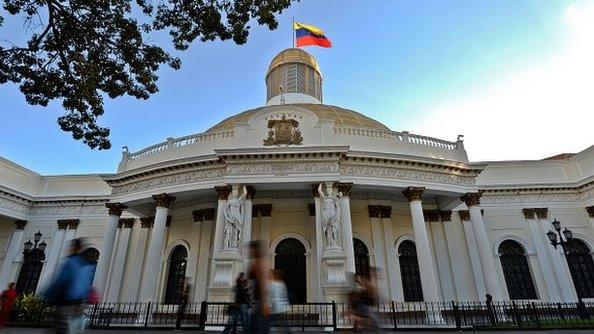Venezuela opposition to speed up plans to oust Maduro
- Published
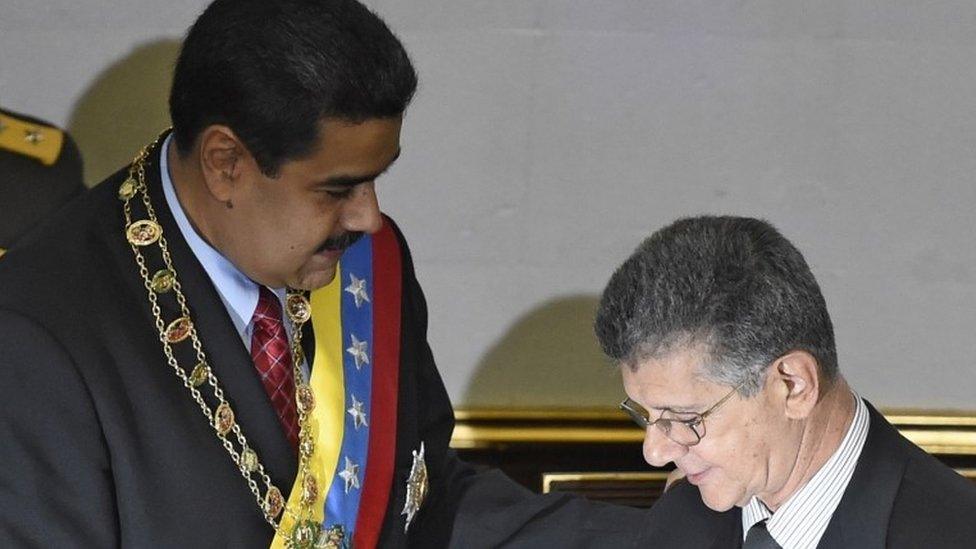
Old political foes: President Maduro (left) and National Assembly speaker Henry Ramos Allup
The new opposition-controlled National Assembly in Venezuela plans to speed up moves to oust the government of Nicolas Maduro as economic woes deepen.
Parliament speaker Henry Ramos Allup said proposals would be presented in a matter of days - rather than months.
A day earlier, President Maduro was given backing by the Supreme Court for a declaration of economic emergency, giving him greater powers.
Venezuela is facing a shortage of many staple goods and rampant inflation.
Its economy is heavily dependent on oil exports and has suffered substantially in the past year given the sharp fall in crude oil prices in international markets.
Energy rationing has been imposed, blamed by government ministers on critically low water levels caused by drought at 18 of the country's hydro-electric dams.
'No time to wait'
The National Assembly speaker and other opposition leaders had previously announced they planned to challenge Mr Maduro in six months' time.
But Mr Ramos now says the country cannot afford to wait.
"Nobody doubts now that that six-month timeframe is too long," he said.
"It is not we who impose the timing, it is the needs of the country."
"In the next few days we will have to present a concrete proposal for the departure of that national disgrace that is the government," he told a news conference.
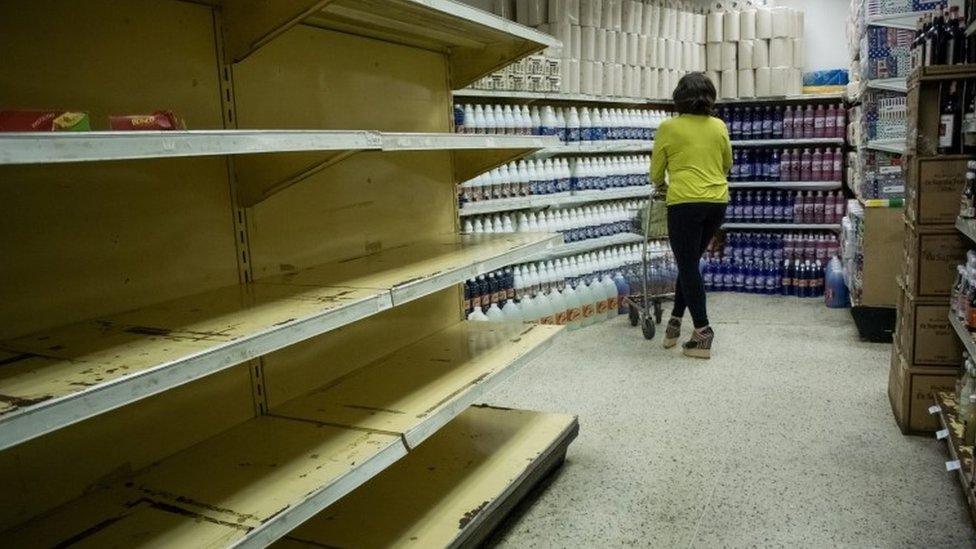
A national food crisis was declared by the Venezuela's National Assembly on Thursday
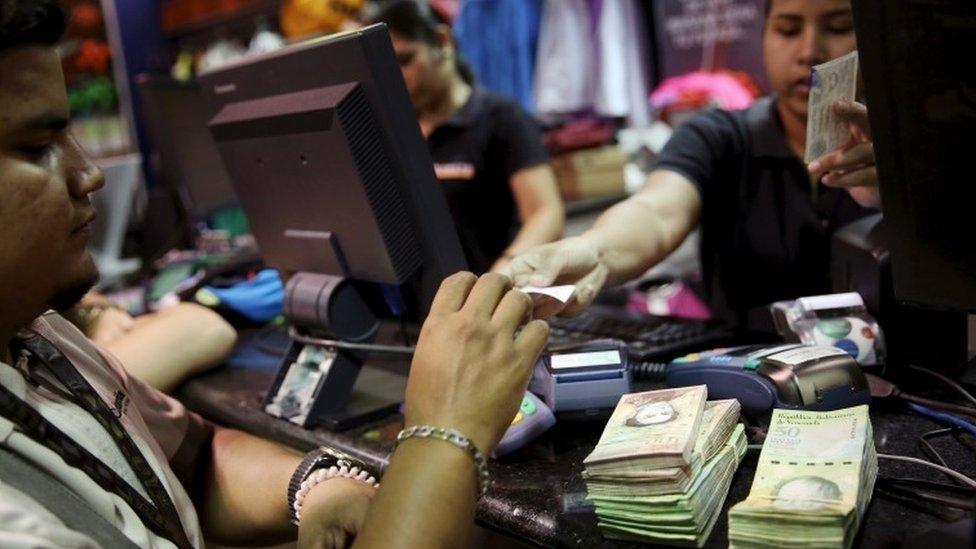
Venezuela has one of the highest inflation rates in the world, running at more than 140% in 2015
Mr Ramos called on President Maduro to revoke the decree on emergency measures.
And he also attacked the Supreme Court over the decree, saying if what it "has done is not a coup, I don't know what to call it".
Most if not all Supreme Court judges have been appointed either by Mr Maduro or his predecessor, the late Hugo Chavez.
The court has not ruled against the government since Mr Chavez came to power in 1999.
Recall referendum
Mr Maduro defended the court's ruling and said the measures were necessary to deal with the crisis.
"This decision was taken by the highest court of the country, in accordance with the constitution," said Mr Maduro.
His decree was issued on 14 January. It is valid for 60 days and it can be renewed by the president.
The government says businessmen linked to the opposition have been hiding basic staples such as flour, sugar and toilet paper as part of a strategy to undermine the economy and oust Mr Maduro's democratically elected government.
He was elected in April 2013 to a six-year term, replacing Mr Chavez, who died of cancer after 14 years in office.
The Venezuelan constitution says that a referendum to replace the president can be called any time after the first three years of his term, which will be in April 2016.
Four million signatures are needed to trigger a recall referendum.
The governing Socialist Party suffered a heavy defeat in December's legislative election. It lost control of the National Assembly for the first time in 16 years.
- Published15 January 2016
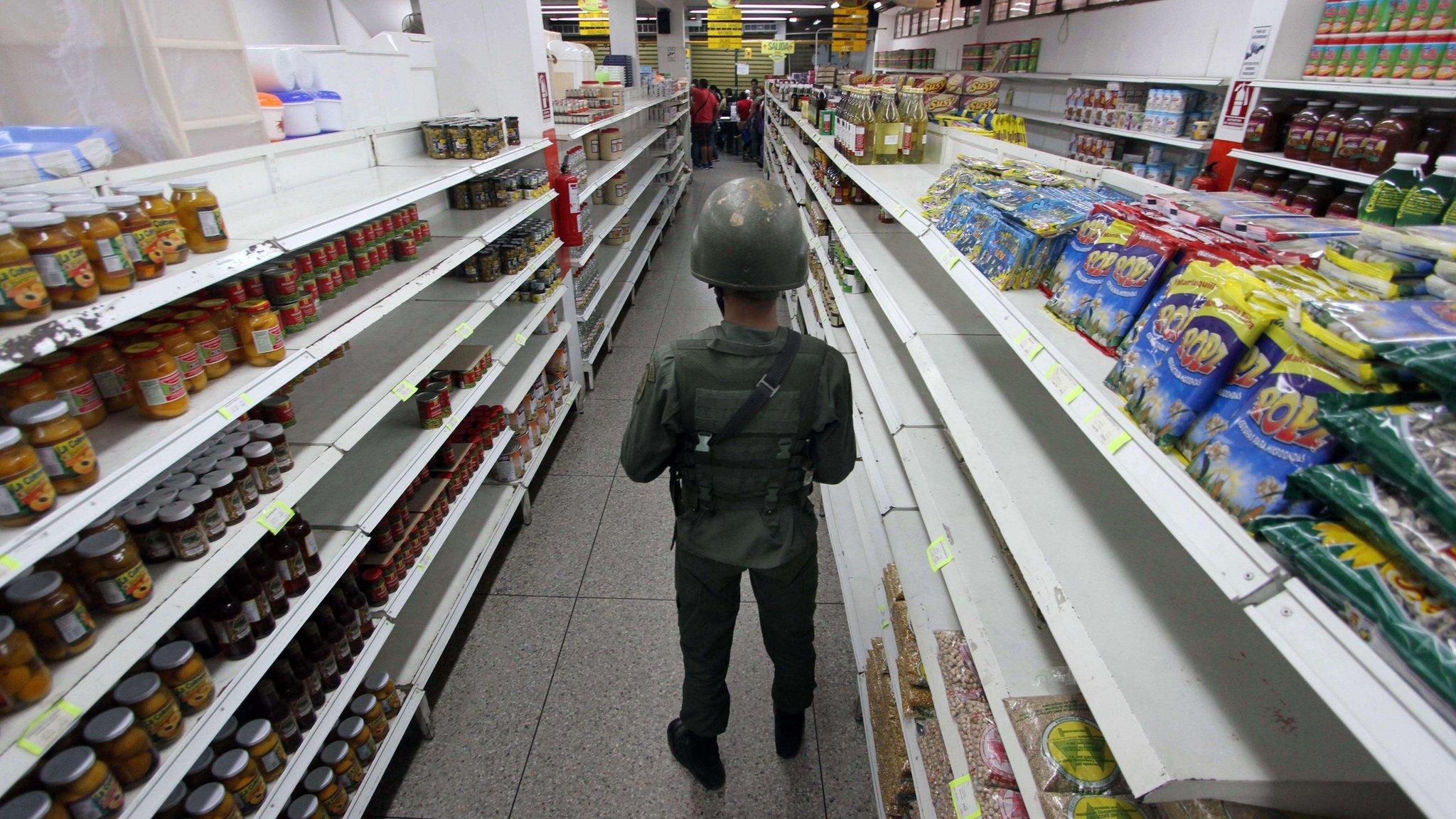
- Published8 February 2016
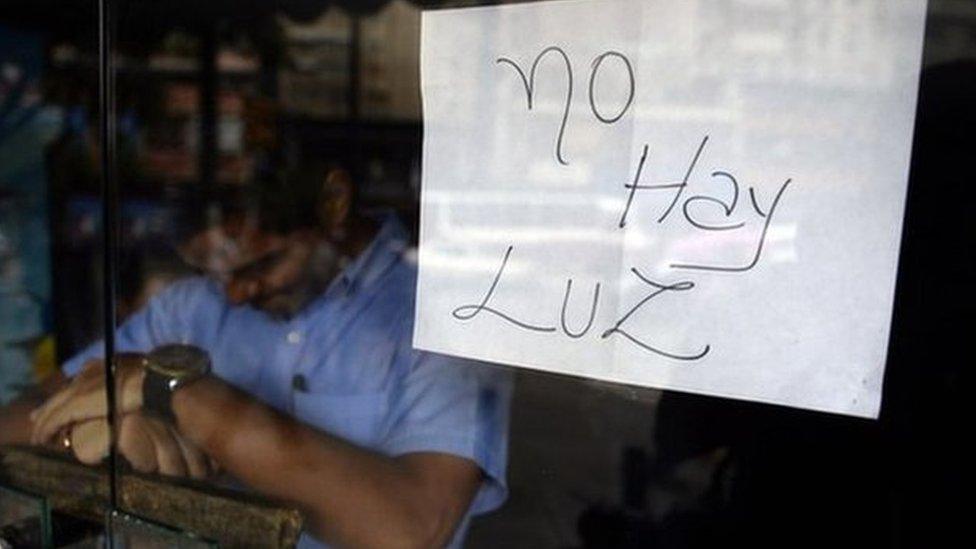
- Published12 February 2015
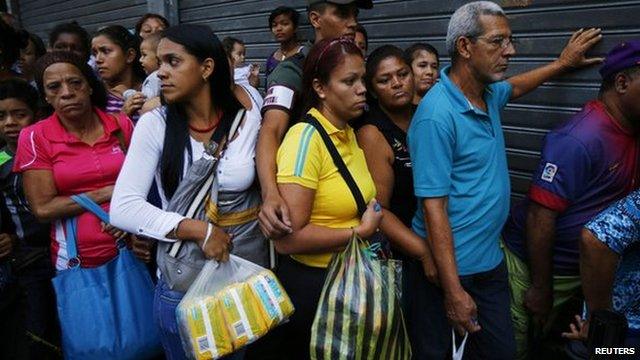
- Published7 January 2016
